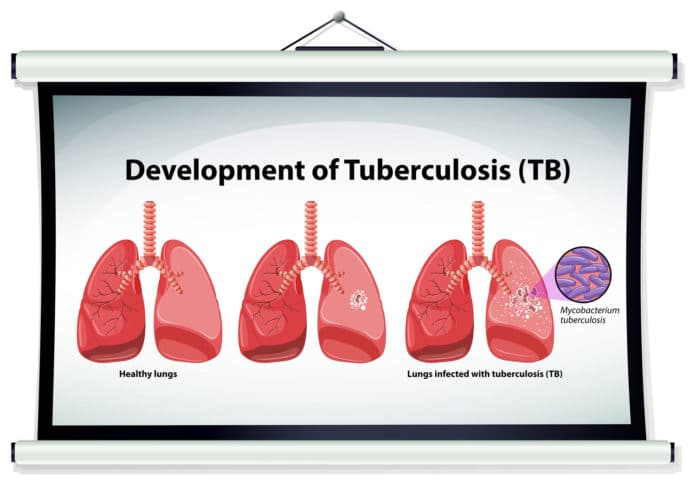Menaquinone (vitamin K2) plays a vital role in energy generation and environmental adaptation in many bacteria, including the human pathogen Mycobacterium tuberculosis (Mtb). Although menaquinone levels are known to be tightly linked to the cellular redox/energy status of the cell, the regulatory mechanisms underpinning this phenomenon are unclear.
A new study led by the University of Canterbury (UC) scientist has devised a new mechanism to control the production of Menaquinone in the bacterial pathogen that causes tuberculosis.
An enzyme called MenD from an early step in the process of making vitamin K2 is controlled by one of the chemicals produced from a later step, just before the vitamin K2 molecule is completed. This so-called “feedback inhibition” allows the pathogen to slow down or speed up how much vitamin K2 is made.
Lead investigator and Senior Lecturer Dr. Jodie Johnston, of UC’s School of Physical and Chemical Sciences and Biomolecular Interaction Centre, said, “As far as we know, this is the first time that allosteric regulation has been reported for the menaquinone (vitamin K2) biosynthesis pathway in any domain of life.”
This ability to control vitamin K2 levels is probably going to assist the pathogen in adapting to the occasionally hostile and changing environment in the human host during infection. Since humans don’t produce vitamin K2, the enzymes that cooperate to produce it in bacteria are viewed as potential targets for new antimicrobial drugs. The disclosure of this regulation site, and the revealing of the 3D map of that site, give another objective for creating specific medications to treat tuberculosis.
The team of Marsden-funded scientists consists of three mid-career researchers with young families who are all affiliated with the Maurice Wilkins Centre (MWC): lead investigator Dr. Jodie Johnston at the University of Canterbury, and Dr. Ghader Bashiri and Dr. Esther Bulloch both from the School of Biological Sciences at the University of Auckland.
The team combines their biochemical expertise to study bacterial and viral pathogens to reduce the impact of infectious diseases, killing millions worldwide per year. They plan to work together in the future to unravel more mysteries about the TB causing pathogen.
Reference:
- Allosteric regulation of menaquinone (vitamin K2) biosynthesis in the human pathogen Mycobacterium tuberculosis. DOI: 10.1074/jbc.RA119.012158
